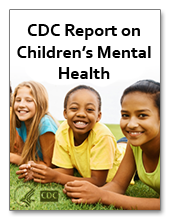Toddlers (2-3 years of age)

Developmental Milestones
Skills such as taking turns, playing make believe, and kicking a ball, are called developmental milestones. Developmental milestones are things most children can do by a certain age. Children reach milestones in how they play, learn, speak, behave, and move (like jumping, running, or balancing).
Because of children’s growing desire to be independent, this stage is often called the “terrible twos.” However, this can be an exciting time for parents and toddlers. Toddlers will experience huge thinking, learning, social, and emotional changes that will help them to explore their new world, and make sense of it. During this stage, toddlers should be able to follow two- or three-step directions, sort objects by shape and color, imitate the actions of adults and playmates, and express a wide range of emotions.
Positive Parenting Tips
Following are some of the things you, as a parent, can do to help your toddler during this time:
- Set up a special time to read books with your toddler.
- Encourage your child to take part in pretend play.
- Play parade or follow the leader with your toddler.
- Help your child to explore things around her by taking her on a walk or wagon ride.
- Encourage your child to tell you his name and age.
- Teach your child simple songs like Itsy Bitsy Spider, or other cultural childhood rhymes.
- Give your child attention and praise when she follows instructions and shows positive behavior and limit attention for defiant behavior like tantrums. Teach your child acceptable ways to show that she’s upset.
Positive Parenting Tip Sheet
Child Safety First
Because your child is moving around more, he will come across more dangers as well. Dangerous situations can happen quickly, so keep a close eye on your child. Here are a few tips to help keep your growing toddler safe:
- Do NOT leave your toddler near or around water (for example, bathtubs, pools, ponds, lakes, whirlpools, or the ocean) without someone watching her. Fence off backyard pools. Drowning is the leading cause of injury and death among this age group.
- Encourage your toddler to sit when eating and to chew his food thoroughly to prevent choking.
- Check toys often for loose or broken parts.
- Encourage your toddler not to put pencils or crayons in her mouth when coloring or drawing.
- Do NOT hold hot drinks while your child is sitting on your lap. Sudden movements can cause a spill and might result in your child’s being burned.
- Make sure that your child sits in the back seat and is buckled up properly in a car seat with a harness.

Healthy Bodies
- Talk with staff at your child care provider to see if they serve healthier foods and drinks, and if they limit television and other screen time.
- Your toddler might change what food she likes from day to day. It’s normal behavior, and it’s best not to make an issue of it. Encourage her to try new foods by offering her small bites to taste.
- Keep television sets out of your child’s bedroom. Limit screen time, including video and electronic games, to no more than 1 to 2 hours per day.
- Encourage free play as much as possible. It helps your toddler stay active and strong and helps him develop motor skills.
For More Information
CDC’s “Learn the Signs. Act Early.” Campaign
For more details on developmental milestones, warning signs of possible developmental delays, and information on how to help your child’s development, visit the “Learn the Signs. Act Early.” campaign website.
CDC’s Parent Information (Children 0―3 years)
This site has information to help you learn how to give your child a healthy start in life.
CDC’s Essentials for Parenting Toddlers and Preschoolers
Learn ways you can help build a safe, stable, and nurturing relationship with your child.
CDC’s Breastfeeding Information.
This site has answers to frequently asked questions about breastfeeding.
CDC’s Healthy Weight Information.
Tips for Parents – Ideas to help children maintain a healthy weight.
CDC’s Protect the Ones You Love
CDC’s Injury Center has information on how you can protect your child from drowning and other common causes of injury.
Bright Futures
Bright Futures provides information on what to expect as your baby grows, including parenting tips. Patient/parent education handouts are available for your child’s regular check-up visit with your healthcare provider from 2-5 days of age until 18-21 years of age.
Choose My Plate- Preschoolers
The U.S. Department of Agriculture provides information on health and nutrition for 2 through 5 years of age.
HealthyChildren.org
AAP’s Healthy Children website provides information on feeding, nutrition, and fitness for all developmental stages from infancy to young adulthood.
Just in Time Parenting (JITP)
Quality, research-based information to families at the time it can be most useful.
Let’s Move – Child Care
You will find information on physical activity for young children and on ways to keep them moving.
National Highway Traffic Safety Administration (NHTSA)
NHTSA has information on safety recalls and safety tips for children riding in motor vehicles, walking, biking, playing outside, waiting at school bus stops, and more.
National Institute of Child Health and Human Development. (NICHD)
Visit NICHD to learn how to reduce the risk of Sudden Infant Death Syndrome (SIDS) and about safe sleep environments.
Vaccines
View the child immunization schedule and find out if your child’s vaccinations are up to date.
World Health Organization information on infant nutrition
This site has information to promote proper feeding for infants and young children.
CDC’s “Learn the Signs. Act Early.” Campaign
For more details on developmental milestones, warning signs of possible developmental delays, and information on how to help your child’s development, visit the “Learn the Signs. Act Early.” campaign website.
CDC’s Parent Information (Children 4−11 years)
This site has information to help you guide your child in leading a healthier life.
CDC’s Essentials for Parenting Toddlers and Preschoolers
Learn ways you can help build a safe, stable, and nurturing relationship with your child.
CDC’s Healthy Weight Information.
Tips for parents – Ideas to help children maintain a healthy weight.
Bright Futures
Bright Futures provides information on what to expect as your baby grows, including parenting tips. Patient/parent education handouts are available for your child’s regular check-up visit with your healthcare provider from 2-5 days of age until 18-21 years of age.
Building Blocks
SAMHSA’s Building Blocks help parents, caregivers, and educators of children ages 3 to 6 in creating safe, supportive, and nurturing environments for young children to help them grow up mentally healthy and drug-free.
Choose My Plate- Preschoolers
The U.S. Department of Agriculture provides information on health and nutrition for children 2 through 5 years of age.
HealthyChildren.org
AAP’s Healthy Children website provides information on feeding, nutrition, and fitness for all developmental stages from infancy to young adulthood.
Just in Time Parenting (JITP)
Quality, research-based information to families at the time it can be most useful.
Let’s Move – Child Care
You will find information on physical activity for young children and on ways to keep them moving.
National Highway Traffic Safety Administration (NHTSA)
NHTSA has information on safety recalls and safety tips for children riding in motor vehicles, walking, biking, playing outside, waiting at school bus stops, and more.
CDC’s Parent Information (Children 4 — 11 years)
This site has information to help you guide your child in leading a healthier life.
CDC’s Healthy Weight Information.
Tips for parents – Ideas to help children maintain a healthy weight.
CDC’s Youth Physical Activity Guidelines Toolkit
This site has information on how to help children be active and play.
KidsQuest
KidsQuest is a CDC website designed for students in fourth, fifth, and sixth grades, to get them to think about people with disabilities and some of the issues related to daily activities, health, and accessibility.
BAM! Body and Mind
CDC’s BAM! Body and Mind is a website designed for kids 9 through 13 years of age to give them the information they need to make healthy lifestyle choices. The site focuses on topics that kids told us are important to them—such as stress and physical fitness—using kid-friendly lingo, games, quizzes, and other interactive features.
Bright Futures
Bright Futures provides information on what to expect as your baby grows, including parenting tips. Patient/parent education handouts are available for your child’s regular check-up visit with your healthcare provider from 2-5 days of age until 18-21 years of age.
Choose My Plate – Children over 5.
The U.S. Department of Agriculture provides information on health and nutrition for children over 5 years of age.
HealthyChildren.org
AAP’s Healthy Children website provides information on feeding, nutrition, and fitness for all developmental stages from infancy to young adulthood. Visit this website to learn more about emotional problems, learning disabilities and other health and development concerns.
Just in Time Parenting (JITP)
Quality, research-based information to families at the time it can be most useful.
Let’s Move-Parents
Five simple steps for parents towards creating a healthy environment at home.
National Highway Traffic Safety Administration (NHTSA)
NHTSA has information on safety recalls and safety tips for children riding in motor vehicles, walking, biking, playing outside, waiting at school bus stops, and more.
StopBullying.gov
StopBullying.gov provides information from various government agencies on how kids, teens, young adults, parents, educators and others in the community can prevent or stop bullying.
SAMHSA’s KnowBullying app
A free app for parents to help prevent bullying, created by the Substance Abuse and Mental Health Agency (SAMHSA).
Teens Health
Visit this site for information on healthy eating and exercise for children and teenagers, safety tips for your child at home when you can’t be there, and other important health and safety topics.
CDC’s Parent Information (Teens 12— 19)
This site has information to help you learn how to guide your teen to be safe and become a healthy and productive adult.
CDC’s Healthy Weight Information.
Tips for parents – Ideas to help children maintain a healthy weight.
CDC’s Pregnancy Prevention for Teens.
Tips and information especially for teens and designed with input from teens.
American Academy of Child & Adolescent Psychiatry
The American Academy of Child & Adolescent Psychiatry has many fact sheets for parents on child and adolescent health and development.
BAM! Body and Mind
CDC’s BAM! Body and Mind is a website designed for kids 9 through13 years of age, to give them the information they need to make healthy lifestyle choices. The site focuses on topics that kids told us are important to them—such as stress and physical fitness—using kid-friendly lingo, games, quizzes, and other interactive features.
Bright Futures
Bright Futures provides information on what to expect as your baby grows, including parenting tips. Patient/parent education handouts are available for your child’s regular check-up visit with your healthcare provider from 2-5 days of age until 18-21 years of age.
Choose My Plate
The U.S. Department of Agriculture provides information on health and nutrition.
HealthyChildren.org
AAP’s Healthy Children website provides information on feeding, nutrition, and fitness for all developmental stages from infancy to young adulthood.
Just in Time Parenting (JITP)
Quality, research-based information to families at the time it can be most useful.
Let’s Move-Kids
Five simple steps for kids towards growing up healthy.
National Highway Traffic Safety Administration (NHTSA)
NHTSA has information on safety recalls and safety tips for children riding in motor vehicles, walking, biking, playing outside, waiting at school bus stops, and more.
National Institute of Mental Health
The National Institute of Mental Health has information on mental disorders affecting children and adolescents, including anxiety and depression.
StopBullying.gov
StopBullying.gov provides information from various government agencies on how kids, teens, young adults, parents, educators, and others in the community can prevent or stop bullying.
SAMHSA’s KnowBullying app
A free app for parents to help prevent bullying, created by the Substance Abuse and Mental Health Agency (SAMHSA).
Substance Abuse and Mental Health Services Administration (SAMHSA)
SAMHSA works to improve the quality and availability of substance abuse prevention, alcohol and drug addiction treatment, and mental health services.
Teens Health
Visit this site for information on healthy eating and exercise for children and teenagers.
- Page last reviewed: February 1, 2017
- Page last updated: January 3, 2017
- Content source:
- Division of Human Development and Disabilities, National Center on Birth Defects and Developmental Disabilities, Centers for Disease Control and Prevention



 ShareCompartir
ShareCompartir